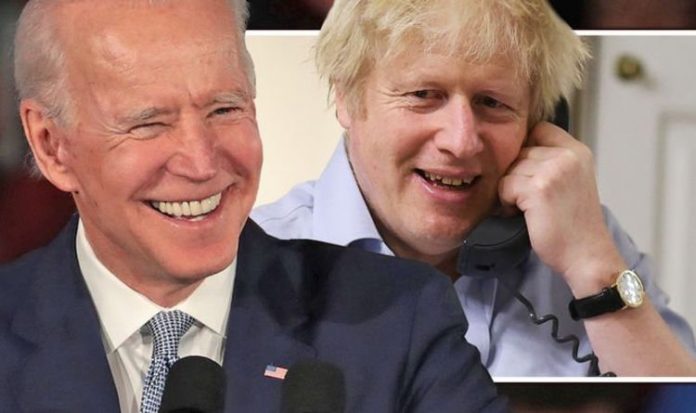Spaceport Cornwall: Newquay set to be hub of UK space travel
Spaceport Cornwall is set to become Europe’s first horizontal launch site to provide a responsive, affordable and efficient way to send small satellites into Low-Earth Orbit (LEO). The breakthrough comes after Richard Branson’s Virgin Orbit successfully completed the first full orbital launch of its LauncherOne system from Mojave Air and Space Port in California. And now, as Mr Branson’s “key delivery partner,” the Cornwall Council-funded project could host the first Virgin Orbit launches as early as 2022 – creating up to 350 jobs and adding up to £200million Gross Value Added (GVA) to the economy.
As the Prime Minister prepares to meet US President Joe Biden at the G7 Summit in Cornwall for the first time since his inauguration, interim Head of Spaceport Cornwall Melissa Thorpe has told Express.co.uk why it could be a monumental moment.
She said: “It’s a huge opportunity, not only for Spaceport but also for Cornwall.
“There is some incredible stuff going on down here, the assets in Cornwall – from Goonhilly [Earth Station], to the Eden Project and Cornish Lithium – are world-class.
“For Boris to be able to come and show the world this is happening in a really rural area that is taking a global lead on renewable and green energy – I think it will be a fantastic example.
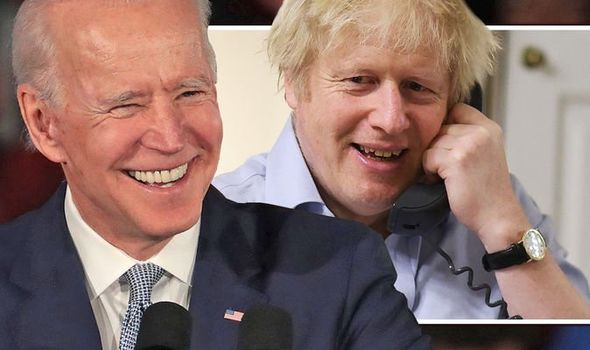
Boris Johnson has been handed a unique opportunity (Image: GETTY)
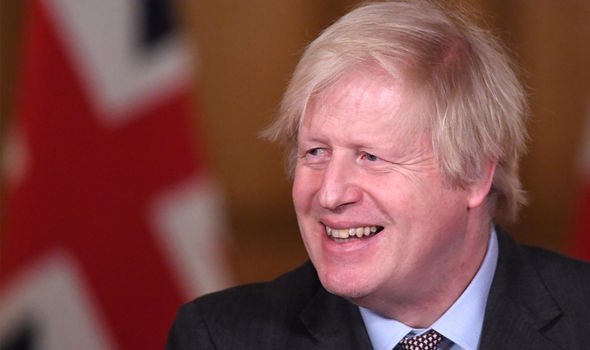
The Prime Minister is set to meet Joe Biden in the summer (Image: GETTY)
“It may be an example and a challenge to those countries to look at some of their rural areas and identify ways they can use the same technology.
“We are looking forward to showing off Spaceport and Virgin Orbit.”
Spaceports have traditionally been used to launch spacecrafts into orbit by blasting huge heavy-lift vehicles off launch pads vertically.
But Cornwall Airport will provide “quite a different” approach – allowing a modified Boeing 747 to cruise to 30,000 feet before the rocket is blasted in what is known as an air-launch.
This can then deploy the payload – which plans to hold small satellites – into LEO.
READ MORE: Virgin project could hand Brexit Britain hundreds of jobs in ‘huge opportunity’
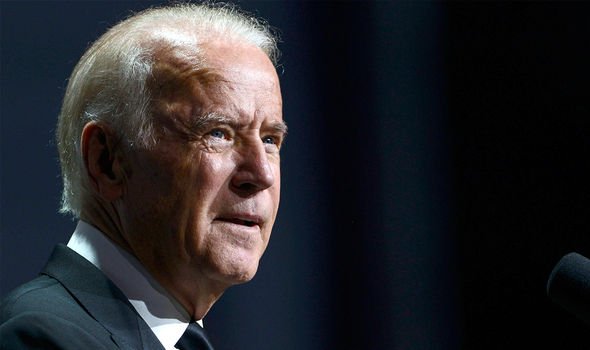
Trade talks with the US are ongoing (Image: GETTY)
This method presents potentially significant advantages over conventional vertical rocket launches, particularly because of the reduced mass, thrust and cost of the rocket.
And Ms Thorpe thinks it will serve Cornwall well.
She added: “Coming out of the pandemic, there’s an opportunity to create some really well-paid, highly skilled jobs.
“It’s in a sector that’s not tourism and hospitality, it’s not farming or fishing.
“It’s something very different and unique, it’s world-class.
“It is a once in a lifetime opportunity for a place like this to really go for it.”
DONT MISS
UK to launch own satellite with Space Command ‘to combat Russia threat [REVEALED]
Coronavirus: Psychological impact of mask-wearing [EXPOSED]
Boris Johnson’s plan to slash your energy bill by £750 [REVEALED]
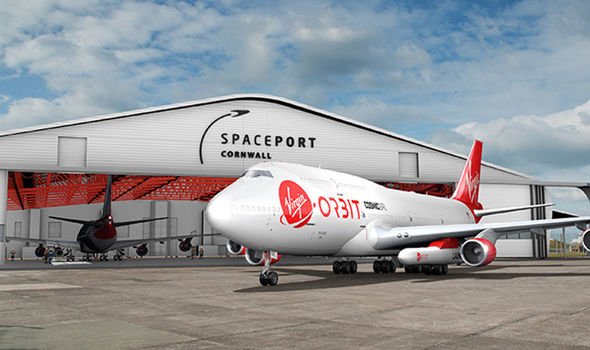
Spceport Cornwall holds a fantastic opportunity (Image: SPACEPORT)
Ms Thorpe says Spaceport Cornwall are already mapping out how they can help Mr Johnson.
She added: “We’re working on plans for G7, nothing is confirmed yet.
“But we’re hoping to have a Virgin Orbit presence here – we won’t be launching due to the regulations we are waiting to come through Parliament.
“We cannot launch legally yet, but we are looking at loads of options and events around Goonhilly.
“There are a lot of ideas at the moment.”
The UK has punched above its weight in the small satellite industry for years, but following Brexit there have been concerns raised over how to hold on to UK-based companies.
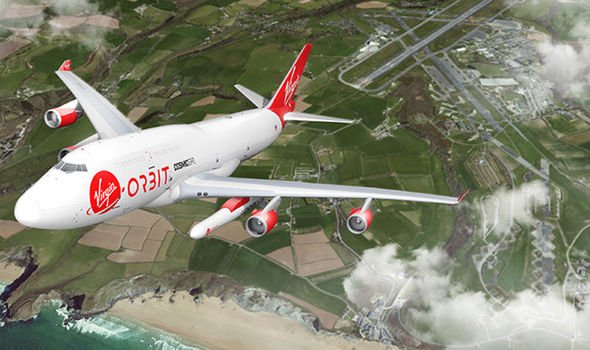
Virgin Orbit successfully tested its technology last month (Image: SPACEPORT)
As Chair of the Parliamentary Space Committee David Morris previously put it: “The UK needs to be much better at defending and retaining its space interests.”
The Government, seeking a replacement for the EU’s Galileo project that the UK was kicked out of, has considered alternatives to an original plan to develop its own satellite constellation.
This has since meant scrapping former Prime Minister Theresa May’s £5billion proposal for a UK GNSS system by pursuing OneWeb – the LEO broadband constellation that the Government, along with Indian company Bharti Global, acquired from bankruptcy.
The new Space-Based Positioning Navigation and Timing Programme (SBPP) will “consider newer, more innovative ideas of delivering global ‘Sat-Nav’ and secure satellite services to meet public, Government and industry needs”.
OneWeb has re-started launches of its small satellites, with more than 100 now in orbit in preparation for a commercial service in 2021.
December’s launch saw 36 satellites blasted into space on a Soyuz rocket from Vostochny Cosmodrome in Russia.
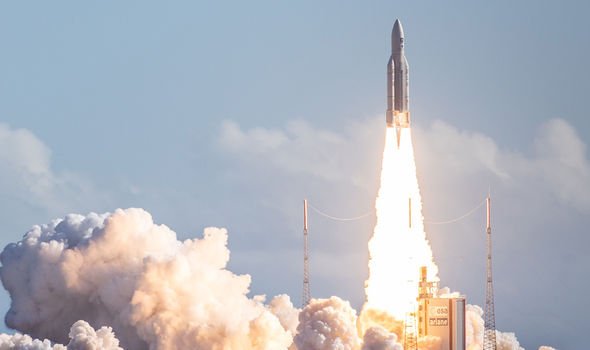
The UK has left the Galileo project (Image: GETTY)
Speaking to Express.co.uk exclusively, Mr Morris said the Government was looking at options to launch OneWeb from UK soil.
He said the project will only strengthen the UK’s space portfolio.
Mr Morris added: “I don’t want to sound like a cheerleader for OneWeb, but it’s been bought by the Government and it’s an opportunity to show off what we do well.
“OneWeb was developed on British technology, the Americans did have a part to play, but they withdrew and it’s now owned substantially by us.
“It’s attracting more money in investments than what we paid for – it’s already profitable.
“We are showing already that we are leading the way in LEO technology around the globe.
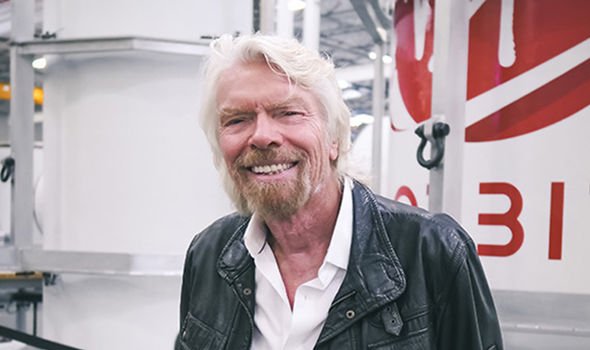
Richard Branson’s company uses horizontal takeoffs (Image: SPACEPORT)
“If Joe Biden comes along I’m sure his people will brief him on the technicalities.”
And Mr Morris tipped OneWeb to be on the agenda when Mr Johnson meets his American peer in the summer.
He added: “It is actually a very big deal, and we are a big player now.
“It won’t do any harm whatsoever for Spaceport to show its credentials to the Americans at G7.
“They had a say in it before, so maybe they may be interested in reinvesting in OneWeb after seeing how successful it has been in just a few months.
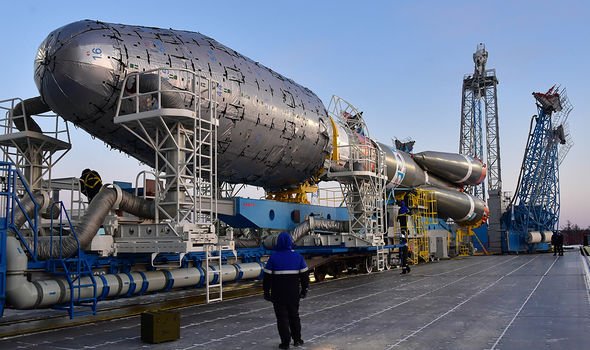
OneWeb may be interested in the technology too (Image: GETTY)
“The Americans know a good thing when they see it and they will likely start thinking along those lines in the future.”
OneWeb was designed as a broadband constellation first and foremost – it will provide rural 4G, and one day 5G, Internet signals in hard-to-reach places.
The company says the latest development puts it on track to offer global Internet services to customers starting with the UK, Alaska, Northern Europe, Greenland, Iceland, the Arctic Seas, and Canada in 2021 with global service following in 2022.
It will operate in LEO, as opposed to the medium Earth orbits used by Galileo, GPS and other navigation systems.
But while the plan will see OneWeb’s first run of satellites used for broadband, future developments could include navigation capacity like Galileo.
